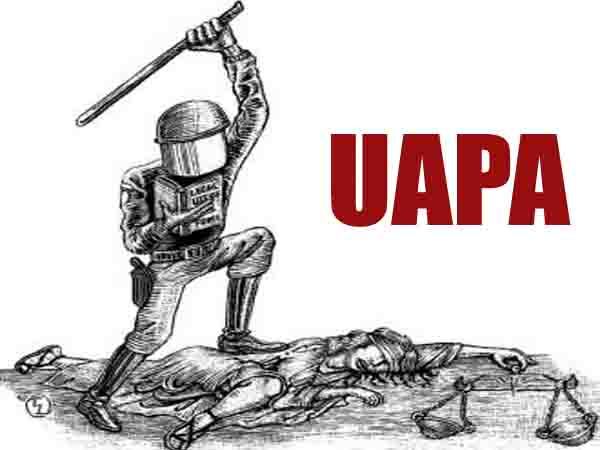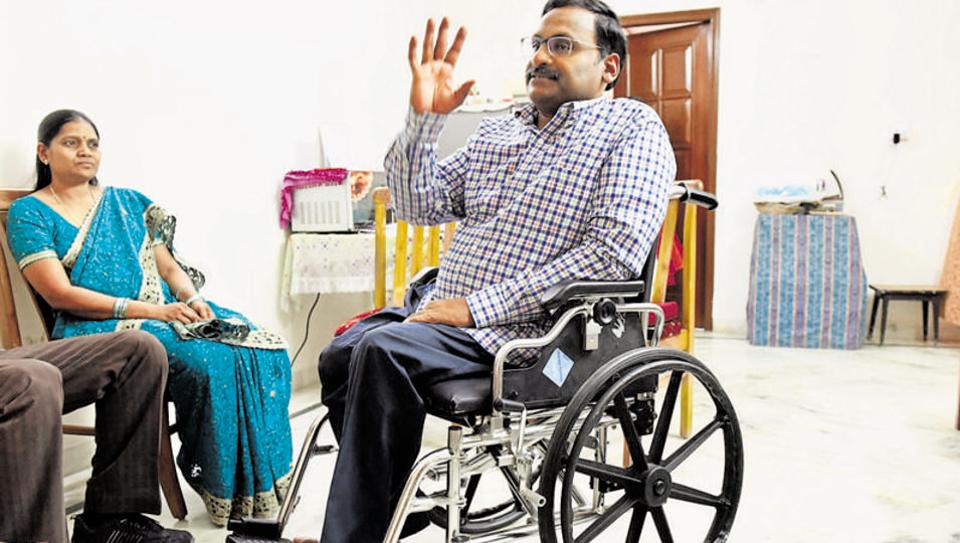Time to Rethink Anti-Terror Laws
The Bhima-Koregaon riots have forced the country to question the rigorous nature of the Unlawful Activities (Prevention) Act.
 The Unlawful Activities (Prevention) Act (UAPA) has attracted a lot of negative attention over the years on account of being an extremely arbitrary and rigid law. The Bhima-Koregaon riots have once again brought this law under the scanner and have forced the country to question the rigorous nature of this law. India is no stranger to terrorist activities. In fact, the threat in our country is as much domestic as it is foreign. In light of this real danger to the unity and sovereignty of India, it is only natural that we have stringent laws to prevent and punish any sort of terrorist activity. However, what happens when these laws, which are meant to protect the citizens of the country, are used to suppress dissent and curb fundamental rights under the garb of preventing “terror activities”? Unfortunately, this is exactly what the Government and our law enforcement agencies are guilty of, as the latest arrests made in the Bhima-Koregaon riots have shown.
The Unlawful Activities (Prevention) Act (UAPA) has attracted a lot of negative attention over the years on account of being an extremely arbitrary and rigid law. The Bhima-Koregaon riots have once again brought this law under the scanner and have forced the country to question the rigorous nature of this law. India is no stranger to terrorist activities. In fact, the threat in our country is as much domestic as it is foreign. In light of this real danger to the unity and sovereignty of India, it is only natural that we have stringent laws to prevent and punish any sort of terrorist activity. However, what happens when these laws, which are meant to protect the citizens of the country, are used to suppress dissent and curb fundamental rights under the garb of preventing “terror activities”? Unfortunately, this is exactly what the Government and our law enforcement agencies are guilty of, as the latest arrests made in the Bhima-Koregaon riots have shown.
Evolution of UAPA
The UAPA was enacted by the Government in 1967 to protect the integrity and sovereignty of the country. It emerged on the heels of the 16th Constitutional Amendment Act, 1963 which included protection of integrity and sovereignty of the country as a ground for the restrictions provided under Article 19 of the Constitution. It was enacted in order to provide the Central Government with a tool to ban organisations which wanted to secede from the Indian Union. Consequently, a number of organisations were banned under this Act, a lot of them linked to Maoist movements.
“In 2004, due to huge protests, the Government repealed the draconian Prevention of Terrorism Act, 2002. However, they cleverly included most of the draconian provisions of this Act in the UAPA through an amendment. UAPA was made more stringent in 2008, after the Mumbai attacks, and yet again in 2012.”
 The Union Ministry of Home Affairs is set to introduce another amendment to the UAPA in this Monsoon Session of the Parliament through which the Government will be able to designate even those individuals who are not associated with any terrorist organisation but engage in terrorist activities independently as a “terrorist”. This will undoubtedly make the Government even more powerful in the implementation of this law.
The Union Ministry of Home Affairs is set to introduce another amendment to the UAPA in this Monsoon Session of the Parliament through which the Government will be able to designate even those individuals who are not associated with any terrorist organisation but engage in terrorist activities independently as a “terrorist”. This will undoubtedly make the Government even more powerful in the implementation of this law.
Problems with the Act
The arbitrariness of the UAPA begins with its vague definitions of the terms “terrorist activities” and “unlawful activities”. The terms are so poorly defined that almost any activity which the police see fit can be deemed to be unlawful. The Act does not only have a provision to ban organisations which are seen as a threat to the unity and integrity of the country but also provides for criminalising any form of association with the banned organisation. Thus, it seeks to criminalise ideologies of individuals and not only activities.
If arrested under this Act, an individual can be detained without a charge sheet for 180 days. This is as opposed to 90 days for individuals detained under offences punishable with death sentences or life imprisonment or imprisonment for a term of not less than 10 years. Getting bail under this Act is also not easy. Thus, the individual is basically imprisoned without any possibility of bail for a minimum of 180 days. This is when there are no real charges against him/her but mere suspicion.
After investigation, if charges are placed against the individual, which in most cases they are, she/he goes to trial with a presumption of guilt. This means that the onus of proof is on the accused. This is a complete reversal of the basic rule of our adversarial justice system – “innocent until proven guilty”. What makes the UAPA even more arbitrary is the fact that, unlike its predecessors, this law has no sunset clause, which is usually added in order to provide a time frame for a law, at the end of which the law shall cease to exist unless any further legislative action is taken.
Misuse of the law
The recent arrests made under this Act in the Bhima-Koregaon riots have reopened the debate regarding the misuse of this law by the Government. Five individuals were arrested after a “money trail” was found between the Naxals and their sympathisers and the organisers of the Elgar Parishad, which was a conference organised by the Dalits to commemorate the 200th anniversary of the historic Battle of Bhima-Koregaon and also to launch an attack on the rising stature of the Hindutva forces. Meanwhile the two individuals who were originally accused of instigating the riots reportedly roam around free. While one of them was not even arrested, the other easily got bail. It is not a mere coincidence that both of these individuals are Hindu right-wing leaders.
“The arrest of the DU professor, G. N. Saibaba, based on “possession of literature, pamphlets, correspondence, audio-video electronic materials which were to be used for inciting people to create violence to cause public disorder” was another example of the arbitrary and irrational use of UAPA.”
He was sentenced to life imprisonment based on mere conjectures and no real proof. Under any other law, his arrest would not have been possible. However, thanks to the vague and far-reaching clauses of the UAPA, a wheelchair-bound professor with 90 per cent disability was detained and imprisoned for life on charges of waging war against the nation.
The most horrific aspect of this entire ordeal is that the Government does not seem to be even thinking about narrowing or restricting this law. The latest amendment which has been proposed and the arrests in the Bhima-Koregaon riots clearly point to the fact that far from being used more judiciously, the Government’s plans are only to broaden its impact and to make it even more stringent. The justification for this is the ‘need to protect the sovereignty of the country’. However, the reality is that it is merely being used as a tool for political vendetta against anyone who dares to voice an opinion against the Government, while organisations which support the Government’s ideology have the liberty of crossing the line every now and then without any repercussions.
“It is being used to curb the voices of protest and organised movements that seek to assert the rights of Dalits, tribals and minorities,” Sudha Bhardwaj, a civil rights activist and lawyer says on the misuse of UAPA.
The Road Ahead
Talking about the perils of the UAPA, Gautam Navlakha of the People’s Union for Democratic Rights says, “A movement against UAPA is the need of the time. Efforts should also be made to seek the commitment of the political parties before the 2019 Lok Sabha polls, so that it is repealed.”
Lawyers, activists and community leaders have repeatedly come out to protest against the arbitrary and stringent nature of UAPA and are demanding an immediate repeal of the law. In 2014, the People’s Movement against UAPA was formed to spread awareness of the evils of the Act and to advocate for the repeal of all anti-people laws. More recently, another meeting was held on the topic “Activism, State Repression and the Unlawful Activities Prevention Act”. The Supreme Court lawyer, Gautam Bhatia, described the Act as “extra-constitutional” in this meeting.
However, a demand to repeal the law altogether is not practical since, as mentioned before, terrorism is very much a real threat in our society and a law to prevent terrorist activities is required. What needs to be done immediately though is decrease the arbitrariness of this law. Terms like “terrorism” and “unlawful activities” should be given a clear and precise meaning. Bail should be allowed under reasonable circumstances and the onus of proof should be on the State and not on the accused. Arrests based on “possession of literature” and “association with banned organsiations” should be reversed and these provisions should be removed immediately. The level of power given to the police through this law should also be reduced since it allows them to misuse it and arrest innocent individuals under mere suspicion without any real proof.
Unless these changes are brought, the dangers of our country turning into a police state will be more real than ever before. Regulating and narrowing the scope of this Act is therefore the need of the hour for us to survive as a true democracy.
